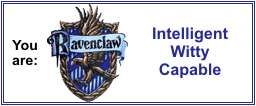 The Social Contract
The Social ContractJean-Jacques Rousseau
September 27, 2008
Globe and Mail
The Social Contract (1762) is a masterpiece of one of the most fascinating of writers. The thought of Jean-Jacques Rousseau (1712-1778) was world-breaking and world-making. His effect on his own age was seismic, and the tremors have never subsided.
To proclaim him the intellectual founder of the modern left is actually to understate his accomplishments. There was no other thinker in whom so many modern impulses converged, only to emerge transformed, still more modern, more radical, more dangerous and enticing. For all his vast influence on the 19th century, much in his thought was so farsighted that it came to be appreciated only in the late 20th.
Rousseau begins from a radical critique of the bourgeois. Indeed, it was he who coined this term in its modern pejorative sense. The bourgeois was the emergent 18th-century type, post-feudal and, one might say, post-Christian. Rational, industrious, this-worldly, homo economicus rather than homo politicus or religiosus, Rousseau was the practical ideal of such Enlightenment thinkers as Hobbes, Locke, Montesquieu and Adam Smith.
For Rousseau, by contrast, the bourgeois was a mere shadow of the human. Both his rationality and his individualism were spurious. Hopelessly divided against himself, he sought only his own good, but was wholly dependent on others to realize it. Compelled either to serve or to oppress his fellows in order to make them means to his ends, he exemplified what Rousseau called "unsocial sociability." Neither a whole unto himself nor fully a part of a greater whole, he could find no rest himself and could leave none to others.
The Social Contract offers Rousseau's positive alternative to the bourgeois, namely the citizen. Free of the divided consciousness that defines the bourgeois, the citizen is fully integrated into his society. He identifies his own good with its good, his will with the collective or general will.
His primary identity is that not of Lucius or Pierre, but of a citizen of Rome or Geneva. This is so far from natural to human beings that Rousseau himself describes successful civic education as "denaturing." For this, the Legislator is required, that Godlike manipulator of the souls of a people for its own good. Now this doesn't sound at all "liberal"; it may even sound "totalitarian."
It certainly sounds reactionary, given that, as Rousseau tells it, the only genuine examples of such citizens and societies are to be found in the distant past, above all in warlike Sparta and the Roman Republic. Yet Rousseau's argument against the modern liberal solution to the political problem rests on impeccably liberal premises. Human beings are by nature free and equal, and both their interests and their dignity demand that the terms of the social contract be such as to permit them to remain so.
There is, according to Rousseau, only one way to accomplish this: for each to alienate his rights to the community as a whole. If the wills of some are not to be subject to those of others, then all must be subject to the will of all, in which each equally participates. Only thus transformed into the sovereignty of the general will can natural human liberty be preserved in civil society. Anything short of this is a pipe dream, a mere illusion of liberty.
Political equality can be genuine, moreover, only in conditions of substantial social equality. In replacing the inequalities of feudalism with those of rich and poor, modern commercial society offers only a vain pretense of liberty and equality alike.
It was the fate of The Social Contract to serve as the (very partial) inspiration of the Jacobins, and thereafter as a political football between left and right. The latter loathed Rousseau. The former adored him (even if it came to regard him as having been superseded by Marx). For the New Left of the 1960s, however, Rousseau had in effect superseded Marx. Theirs was a cultural and political revolution more than an economic one, and they looked to Rousseau for inspiration on both counts.
He remains the patron saint of communitarianism and "participatory democracy."
In fact, however, The Social Contract transcends all these categories. Far from providing a dogmatic answer to the question of how to establish a just society, it offers a series of paradoxes. If Rousseau's realism teaches that the only legitimate basis for political authority is that offered by the general will, it also renders him acutely sensitive to all the obstacles to this outcome. He is thus is his own most trenchant critic, and The Social Contract is the testament of a first-rate mind grappling with the most intractable problems of human society.
Clifford Orwin is a professor of political science at the University of Toronto and distinguished visiting fellow at Stanford University's Hoover Institution. He has written widely on Rousseau.









No comments:
Post a Comment